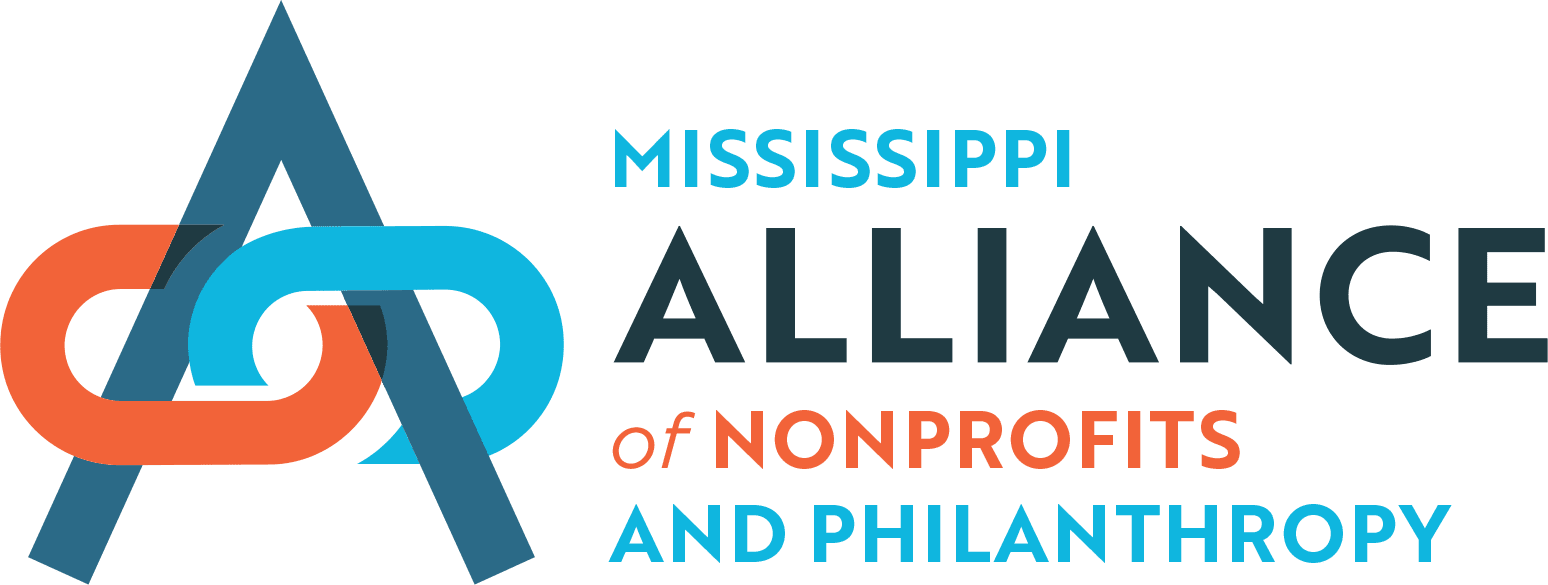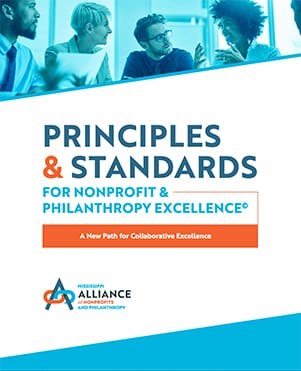Principles & Standards
For Nonprofit & Philanthropy Excellence
The 12 Accountability Principles
8. Legal Accountability & Transparency
About
Accountability
1. A charitable organization must comply with all legal and other required reporting procedures, of the IRS and the Mississippi Secretary of State Nonprofits and philanthropies Division, regarding its performance. FS MS IRS
2. A charitable organization has a financial obligation to use its resources responsibly for the purpose of serving the public interest. The organization’s board should approve its financial audits, while the executive director and treasurer should confirm the accuracy and completeness of the audit, required IRS Form 990 and Mississippi Secretary of State’s URS with their signatures. FS MS IRS
3. A charitable organization has a responsibility to establish and regularly determine clear performance measurements and to share those results with the public.
4. A charitable organization has a responsibility to adhere to its sector’s established, professional standards. FS
Accessibility, Public Input, & Public Information
5. Constituents of nonprofits and philanthropies should be provided with ongoing opportunities to interact with the board and management regarding the organization’s activities.
6. In serving the public trust, nonprofits and philanthropies should publish information regarding activities and performance. The information should include:
a. An explanation of the organization’s mission, activities, and results;
b. An explanation of how individuals can access programs/services;
c. Overview of financial information including actual statements, graphics or specific numbers from the Statement of Activities, Statement of Financial Position, and function expense allocation; and
d. A list of board members, management staff, supporters and donors (donor list is optional).
7. A charitable organization is encouraged to hold public meetings to gather and distribute information about approaches, goals and effectiveness in carrying out its mission.
8. To promote overall accountability within the sector, a charitable organization should openly communicate with other nonprofits and philanthropies to share and gather information on lessons learned and best practices and to discuss possible collaborative efforts.
9. A charitable organization should meet all federal requirements for public disclosure. These state that a nonprofits and philanthropies must provide the last three years’ information returns (Form 990 or its variants, 990-T and the original Form 1023), as follows FS IRS:
a. Public access must be provided immediately on request by allowing inspection of the required IRS documents at the organization’s office or offices;
b. Copies of the documents must be provided within 30 days upon written request;
c. Nonprofits and philanthropies that make their materials widely available through publication on the Internet do not have to provide copies and can refer inquiries to the appropriate website;
d. If the IRS determines that the organization is being subjected to a harassment campaign, copies do not have to be provided;
e. 501(c)(3) organizations are not required to publicly disclose the list of names and addresses of
individual contributors and may block out that section of Form 990 and on other materials for public viewing;
f. Any fees associated with printing costs or information gathering to provide the required IRS forms can be charged and should be disclosed at the time of the request.
10. A charitable organization must have a written, mandatory document retention and periodic destruction policy, which includes guidelines for handling electronic files, back-up procedures, archiving of documents and regular checkups of the reliability of the system. FS IRS
11. Information regarding fees and services should be readily available to the public. These fees should be determined fairly, and the organization should consider the consequences of denial of services due to an individual’s inability to pay.
Fairness & Equity Practices
12. A charitable organization should affirm values of quality, responsibility and accountability and should foster an environment that recognizes and values diversity, racial equity, and inclusion in all endeavors. FS
13. A charitable organization should establish written policies that ensure confidentiality and non-discriminatory service to its constituents. FS MS IRS
14. A charitable organization should disclose how constituent information will be used and ensure that the organizations complies with an individual expressed confidentiality and privacy preferences.
For current Mississippi Charitable Organization laws please visit https://www.sos.ms.gov/Charities/Pages/MS-Charity-Laws.aspx

